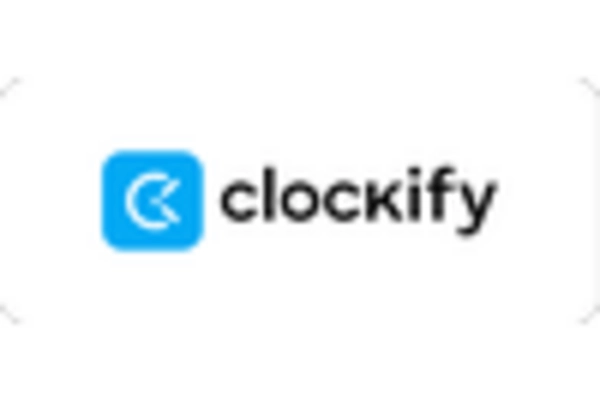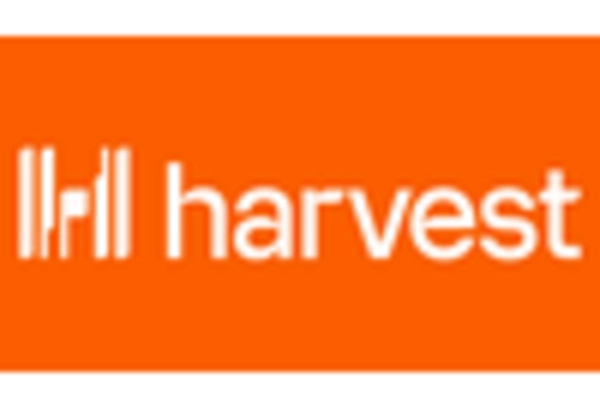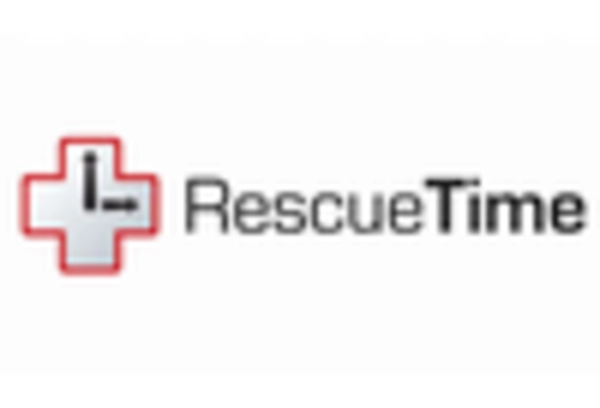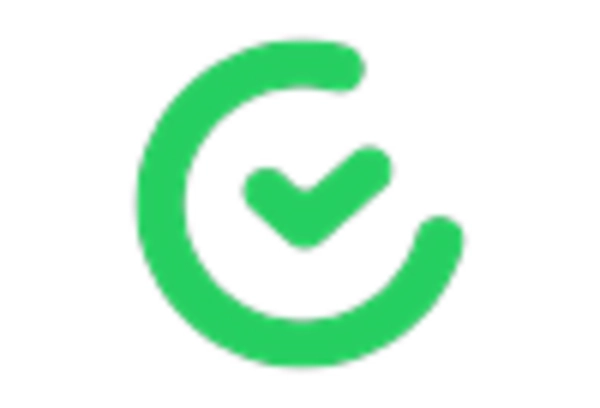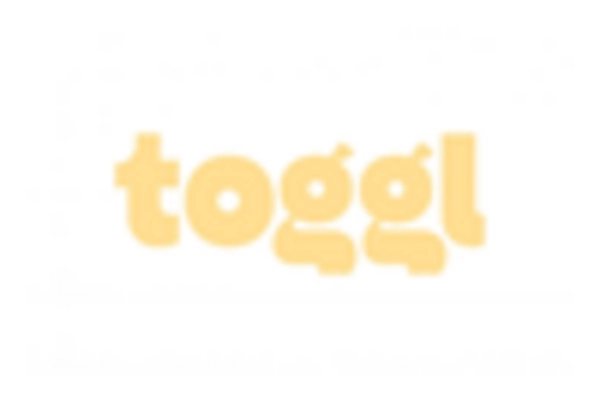Emphasis on Employee Productivity
In Spain, there is a growing focus on enhancing employee productivity, which is driving the time tracking-software market. Organizations are increasingly recognizing the importance of monitoring work hours and project timelines to optimize performance. Recent studies indicate that companies utilizing time tracking software report a 25% improvement in overall productivity. This trend suggests that businesses are investing in tools that not only track time but also provide insights into work patterns and efficiency. The time tracking-software market is likely to see continued growth as firms seek to leverage data-driven strategies to enhance workforce output.
Rising Demand for Remote Work Solutions
The time tracking-software market in Spain is experiencing a notable surge in demand for solutions that facilitate remote work. As organizations increasingly adopt flexible work arrangements, the need for effective time management tools becomes paramount. This trend is reflected in a reported 30% increase in the adoption of time tracking software among remote teams in Spain. Companies are seeking to enhance productivity and accountability, leading to a greater emphasis on software that can accurately monitor work hours and project progress. The time tracking-software market is thus positioned to benefit from this shift, as businesses prioritize tools that support their evolving operational needs.
Shift Towards Data-Driven Decision Making
The shift towards data-driven decision making is reshaping the time tracking-software market in Spain. Businesses are increasingly relying on analytics to inform their operational strategies, and time tracking software plays a crucial role in this process. By providing detailed insights into time allocation and project performance, these tools enable organizations to make informed decisions that enhance efficiency. The time tracking-software market is likely to expand as companies recognize the value of data in optimizing workflows and resource management. This trend suggests a future where time tracking software is integral to strategic planning and operational success.
Growing Regulatory Compliance Requirements
In Spain, the increasing regulatory compliance requirements are significantly influencing the time tracking-software market. Organizations are mandated to adhere to labor laws that necessitate accurate tracking of employee hours. This has led to a heightened demand for software solutions that ensure compliance with these regulations. The time tracking-software market is responding to this need by offering features that facilitate reporting and auditing processes. Companies that fail to comply with these regulations may face substantial fines, making the adoption of reliable time tracking solutions a priority for many businesses.
Integration with Financial Management Systems
The integration of time tracking software with financial management systems is becoming a critical driver in Spain's time tracking-software market. Companies are looking for seamless solutions that connect time tracking with payroll and budgeting processes. This integration can lead to more accurate billing and resource allocation, which is essential for project-based businesses. Reports indicate that firms that implement integrated systems can reduce administrative costs by up to 20%. As such, the time tracking-software market is evolving to meet the demands of businesses seeking comprehensive solutions that streamline operations and improve financial oversight.


